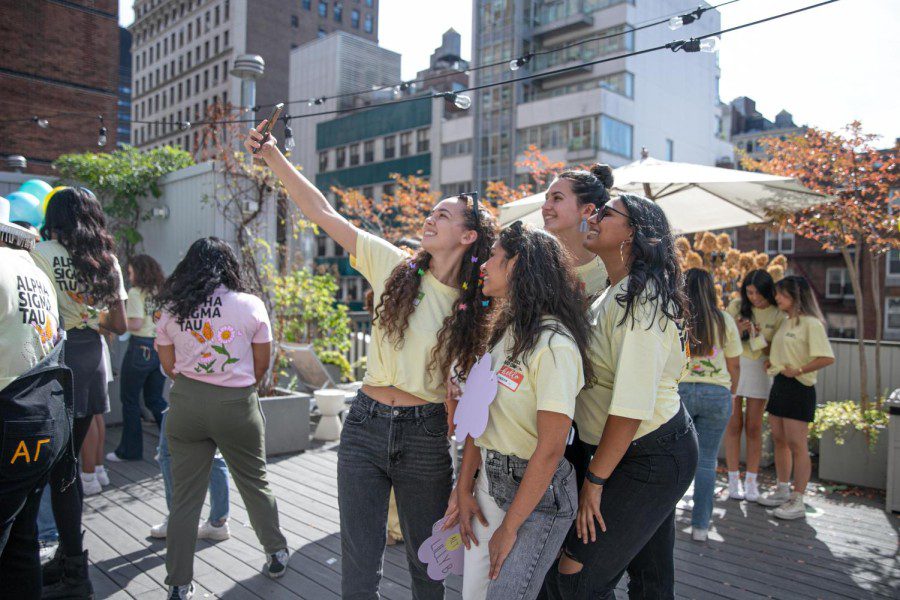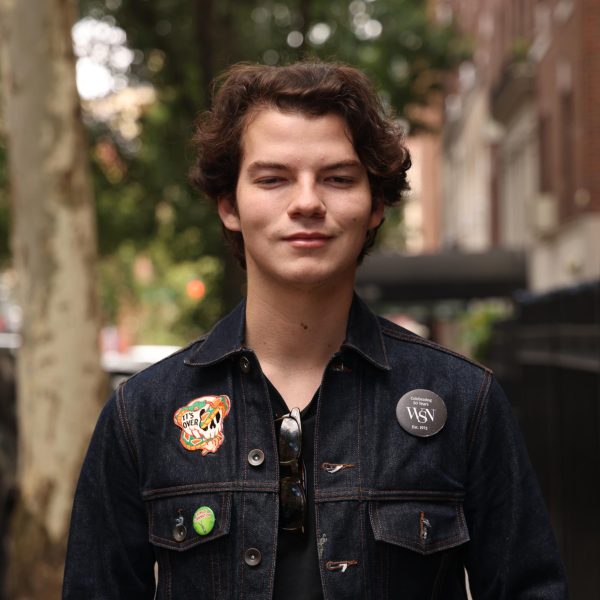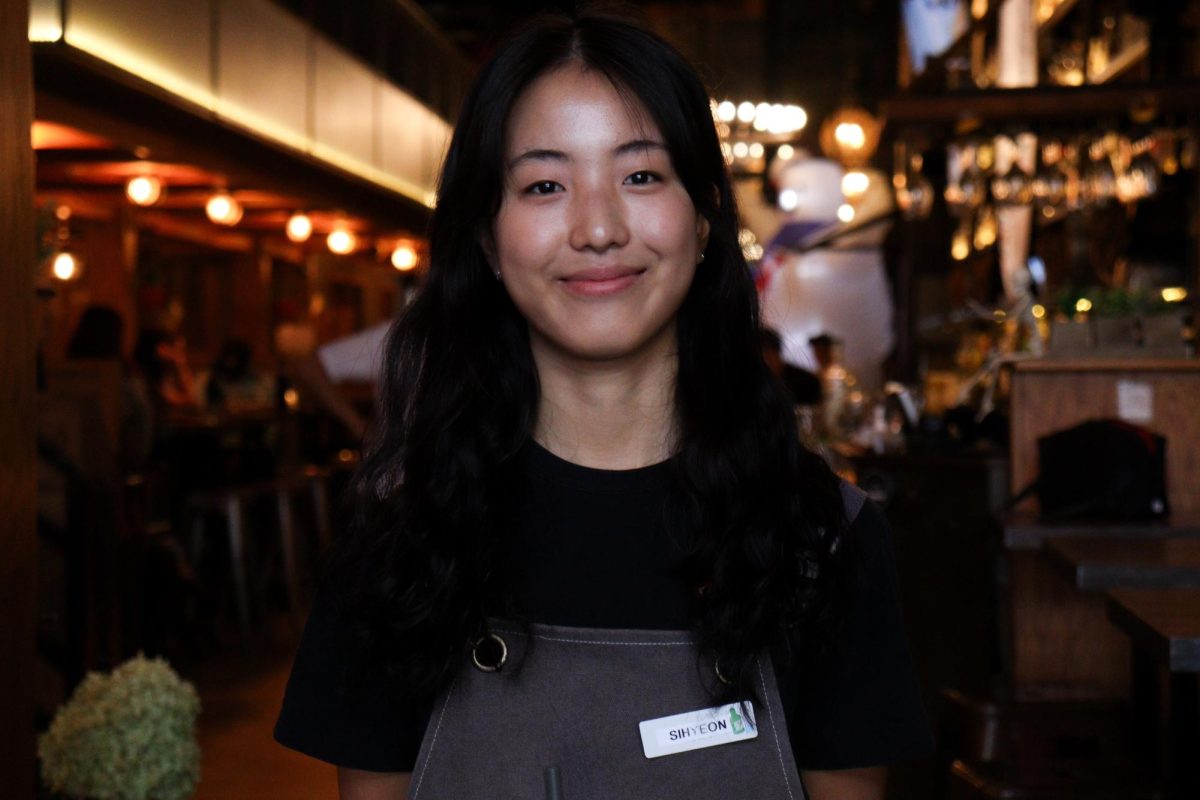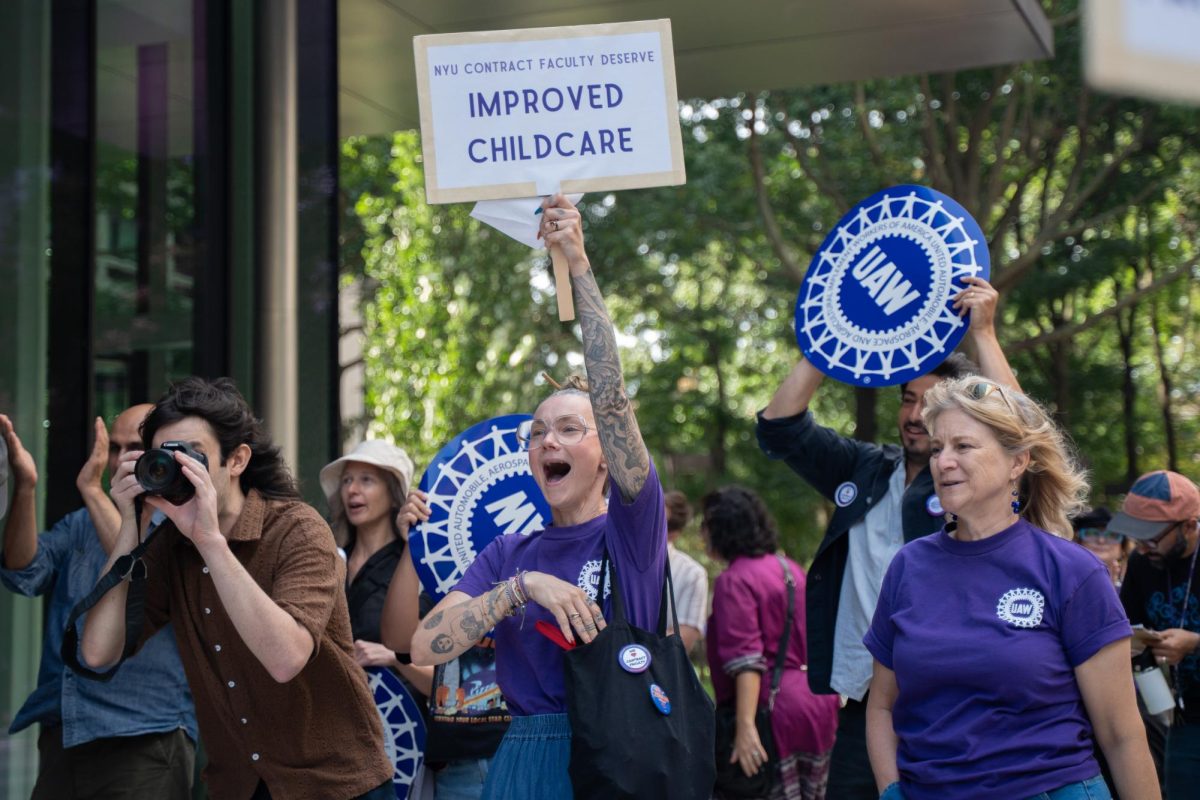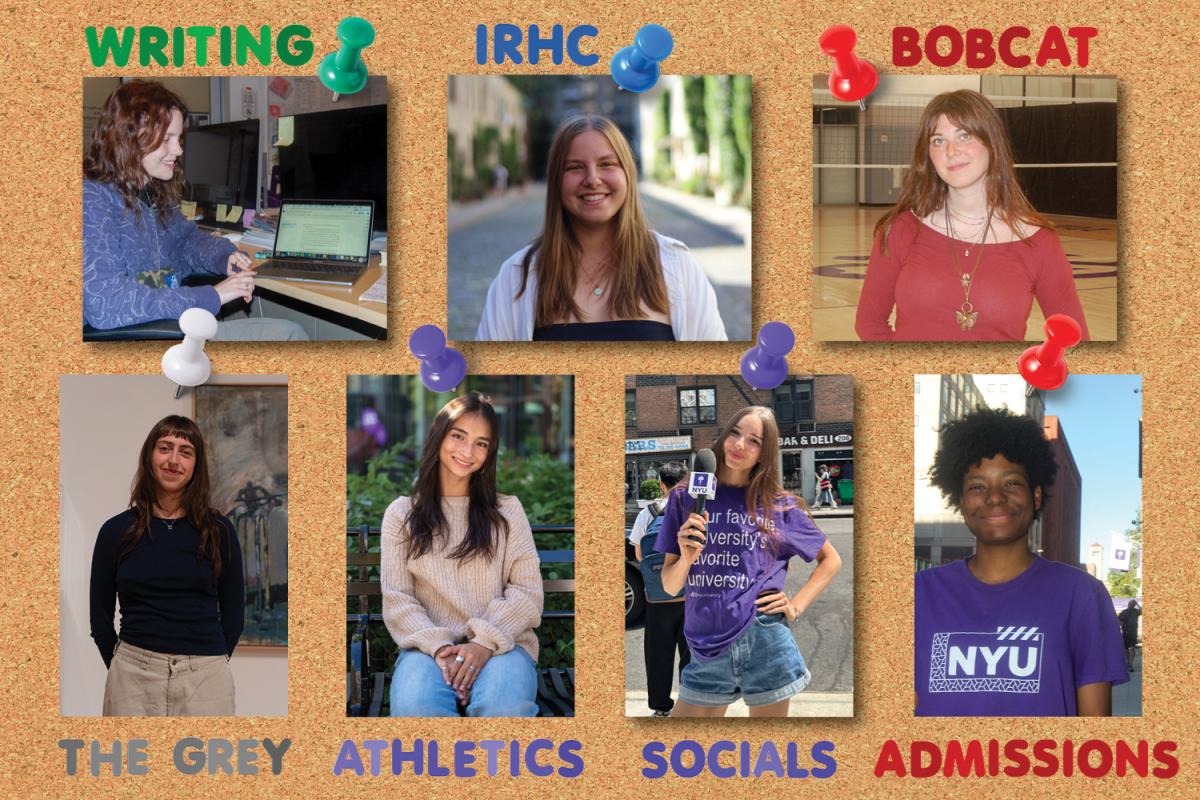Opinion: Fraternities suck. Here’s why they’re still important.
The prominence of NYU’s Greek life is minimal. Maybe it’s time we brought it back.
Many may dismiss NYU Greek Life because of its small presence on campus, but there are some upsides we should consider. (Ryan Walker for WSN)
October 18, 2022
I’ve often heard it said that joining a fraternity at NYU is a social death sentence. Though frat propagandists might try to tell you otherwise, Greek life is barely a part of NYU culture. The average NYU student probably sees a dozen posts every week from their friends partying the day away at some grimy frat house at the University of Michigan, while NYU students are busy touring the Museum of Sex or having a $14 grilled cheese by the Flatiron Building.
Going to NYU is an unconventional experience, and that’s due, in part, to our lack of a centralized campus. Your friends are most likely prior connections or people in your dorm, classes. Most people aren’t going to the same events. Sure, there are some typical restaurants or bars to mingle at, but for the most part, your network at NYU can feel limited. For some students, myself included, NYU life can feel more like living in an apartment in Greenwich Village and taking occasional day classes than actually going to a full-time college. We’re too spread out.
And as much as I hate to say it, it might be a good idea to put more of an emphasis on Greek life at NYU.
That’s not to say that Greek life isn’t a controversial topic. One of the main issues is the prevalence of incidences of sexual assault is higher at schools that place a heavy emphasis on Greek life. CNN reported that fraternity men are three times more likely to commit rape than men who aren’t involved in Greek life. According to the Rape, Abuse & Incest National Network, 26.4% of undergraduate women experience sexual assault. This toxic culture extends to the “pledge” process — the period in which students who want to join the organization are required to put up with abuse to be accepted.
These statistics largely overshadow the benefits fraternities offer. But Greek life could genuinely serve a good purpose: to promote connection.
Having a space where students can regularly come together for a good time would be invaluable, especially at a campus as spread out as ours. With students living in apartments from Queens to Jersey City, it’s vitally important to have somewhere to congregate that isn’t just Washington Square Park.
Some students chose NYU because they wanted something different from the traditional college experience. Many of us prefer a college experience that resembles the life of an adult living in the city. Despite that, there’s no reason that both realities can’t simultaneously exist. Students can choose to experience a precursor to adult life, while also being afforded the social opportunities characteristic of a traditional college.
I talked to one former pledge, who left because of the tribulations of the pledge process. “I found out that many guys were just on power trips, and I wasn’t looking to join that,” he told me. But when I asked him whether he thought fraternities could serve a broader social purpose for the school, he said he believes “they can be good for promoting unity and getting a community together.”
I also asked if he thought fraternities still had the capability to do this currently, despite all the abuse he and his fellow pledges had endured. He gave me a very simple answer: Yes.
NYU must put measures in place to make sure that this harmful culture of toxicity, assault and bullying does not resurface in its fraternities. Then, and only then, should the school move towards embracing Greek life as an integral part of the college experience. Greek life, when done right, has the capacity to help foster social cohesiveness and create a more tightly-knit and inclusive community for everyone.
WSN’s Opinion section strives to publish ideas worth discussing. The views presented in the Opinion section are solely the views of the writer.
Contact Noah Zaldivar at [email protected].

























































































































































